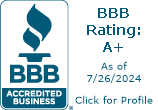Commercial Security Technology: Your 5-Part Framework
- Why Live Video Monitoring is a Game Changer for Property Management - November 12, 2024
- Boost Tenant Confidence with Advanced Video Monitoring - November 10, 2024
- The Future of Surveillance: Live Video Monitoring for Property Managers - November 1, 2024
Every business wants to do security correctly, but some business owners are daunted by new security technologies. Let us show you how easy implementing new commercial security technology can be – and, what it can do for your business – with this five-part framework.
Part 1: Migrate to the cloud.
Everyone’s moving their data to the cloud, but why should you do it? The answer is simple: Because the cloud makes all your existing apps and tools more user-friendly and cost-effective. Plus, everything is already going to the cloud — regardless of how you feel about it.
It’s time to embrace the inevitable, and we can help you do it when it comes to your security technology. If a slow shift to the cloud is your preference, we can start with whatever is most urgent (video, access control, etc.) and make the move one product at a time. What matters most is getting started now.
Part 2: Become a mobile adopter.
When you combine the accessibility of the cloud with the convenience of your mobile device, your management capabilities can shoot into the stratosphere. Imagine your video footage, access control logs and alarm activations are all stored in the cloud and accessible from your smartphone. From a management perspective, this gives you more situational awareness with a lower cost of ownership. In addition, real-time access to your video footage, access logs and triggered alarms gives you the ability to make critical decisions in an emergency.
Another great way to use mobile is to put access control credentials on your employees’ smartphones. After all, their phone is the most encrypted device they own. With mobile technology, there’s so much you can do to improve your business security.
Part 3: Devise an IoT strategy.
What’s IoT? Don’t let the term intimidate you. IoT means “the internet of things,” which means interconnecting your devices — in this case, your security technologies. When you connect your alarms, cameras and access control and store all the data in the cloud, you’ll have more powerful business intelligence: who’s accessing your building, what your most vulnerable hours are — and, if you employ smart environmental technology and integrate it with these systems, what’s happening with your lights and HVAC. Imagine the improved quality of your operations when you do this; everything from your facility management to your human resources systems can get a powerful boost. That’s what the right IoT strategy can help you do.
Part 4: Put business intelligence to use.
The worst commercial security mistake business owners make is to sit on all this great new data. Just having the data isn’t enough; there’s so much it can help you accomplish. Use your newfound security insights to:
- Identify security threats while there’s still time to intervene.
- Make more productive choices for staffing, business hours and security protocol.
- Protect your sensitive business information and valuable equipment.
- Provide a more secure workplace for employees.
These measures convert the data you collect into true business intelligence you can use to make your enterprise better.
Part 5: Embrace social media technology.
Embracing the technology doesn’t refer to lax social media use policies for employees. We’re talking about enabling technologies that operate like social media to enhance communication, collaboration and community. You may already subscribe to employee collaboration tools for business projects; this is simply applying the same model to emergency management. Look for ways social media can facilitate employee communication in an emergency while staying consistent with your company culture. A workplace Facebook group or Messenger thread is a great starting point.
When it comes to the emerging technologies in commercial security, there’s nothing to be afraid of. Use this guide as a framework to enhance your knowledge and start moving forward. If you have any questions about commercial security improvements, contact Security Instrument. We will be happy to help.
From Fortune 500 to local SMB’s throughout the Tri-State area, Security Instrument integrates custom security systems to meet the needs of commercial clients.




